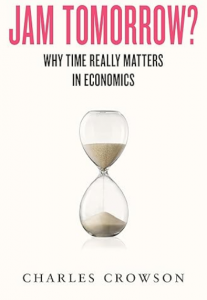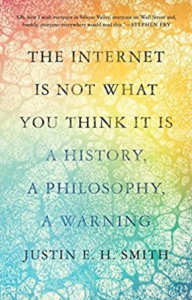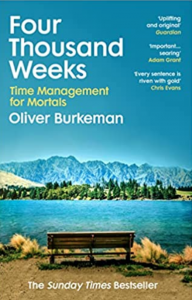My first read of the New Year has been an eccentric book, Jam Tomorrow: Why Time Really Matters in Economics by Charles Crowson. I bought it because of a very positive although short FT review that called it: “an important exposition of why economists ought to think deeper about how we value time — past, present and future.” I’m about four fifths of the way through writing my next book, which is all about my research on economic measurement over the past decade or so. (BTW I need ideas for a title – current working title is ‘The Measure of Progress’.)
Most of this is concerned with measuring the digital economy (we don’t). But one of my preoccupations is a paper I wrote with my friend Leonard Nakamura about whether time use would be a useful accounting framework. Productivity is about saving time. On the consumption side, what wellbeing (or utility) we get from how we spend time is surely what matters to people. The paper is open access.
Anyway, there are relatively few books on this subject so I thought Jam Tomorrow might be interesting. It is quite interesting but not what I thought. It’s about money, assets and interest rates – the price of time. The central point is that ‘we’ in general (in the high income west) have been too short-termist and borrowed to consume, at great environmental cost, and also leading to a malfunctioning housing market in the UK, where housing is seen mainly as an asset. I don’t disagree at all. But reading the book was a bit like sitting at dinner next to someone with lots of strong opinions who is speaking a slightly different language (and there’s an obligatory but irritating chapter about why all economics is rubbish … sigh). There are long chunks of text I either found obvious or alternatively hard to understand – and not a few cliches – but with some really thought-provoking formulations popping up.
For example: “If the price of bread or milk rose sharply in a given week we would instinctively cal it inflation. Yet of the Dow Jones stock index were to rise by 2% on a given day, we don’t say, ‘The Dow inflated by 2% today.” One could rationalise the difference but the point about language is really interesting (and there’s a whole chapter about language and analytic philosophy).
So it’s a sort of mixed review from me; interesting but could have done with quite a hands-on edit. The core argument is summed up nicely: “The central idea in this book is that economic decisions are fundamentally decisions about time, reflecting a basic choice between consumption in the present or delaying that consumption by saving for the future.” Yes indeed. But economists have in fact thought quite deeply about this choice. I’m thinking of a different time margin, how we use – ‘spend’ – our time in the present, the 24 hours a day we cannot save to carry over for tomorrow.



